The Coffee of Tomorrow
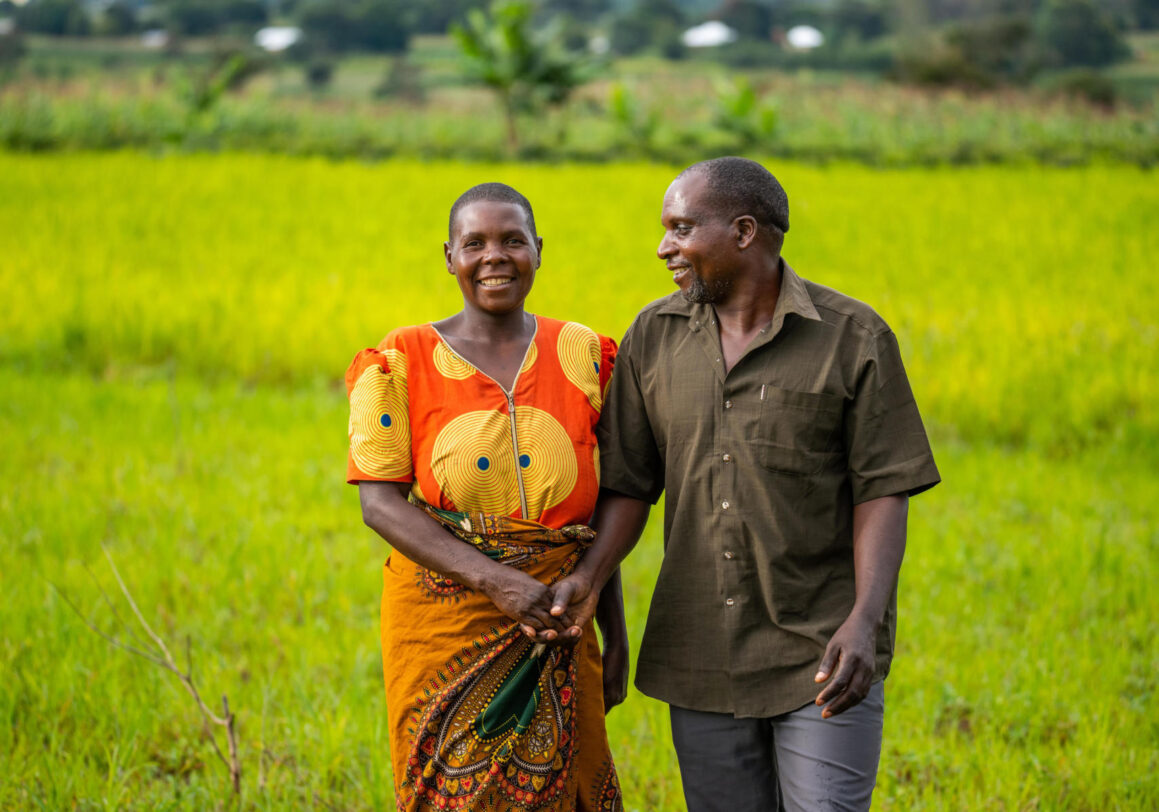
Morris and his wife Erize Mwashirindi have been growing Arabica coffee in Southern Tanzania for decades since Morris inherited his father’s land. Although Southern Tanzania experiences only one rainy season in the year, the rainfall can be quite heavy and prolonged. This causes several problems including soil erosion and the increased occurrence of fungal coffee diseases such as Coffee Berry Disease (CBD) and Coffee Leaf Rust (CLR). To add insult to injury, over the years, the couple’s coffee trees have significantly aged and are yielding fewer cherries. These challenges ultimately reduced the couple’s coffee yields and their family’s main source of income.
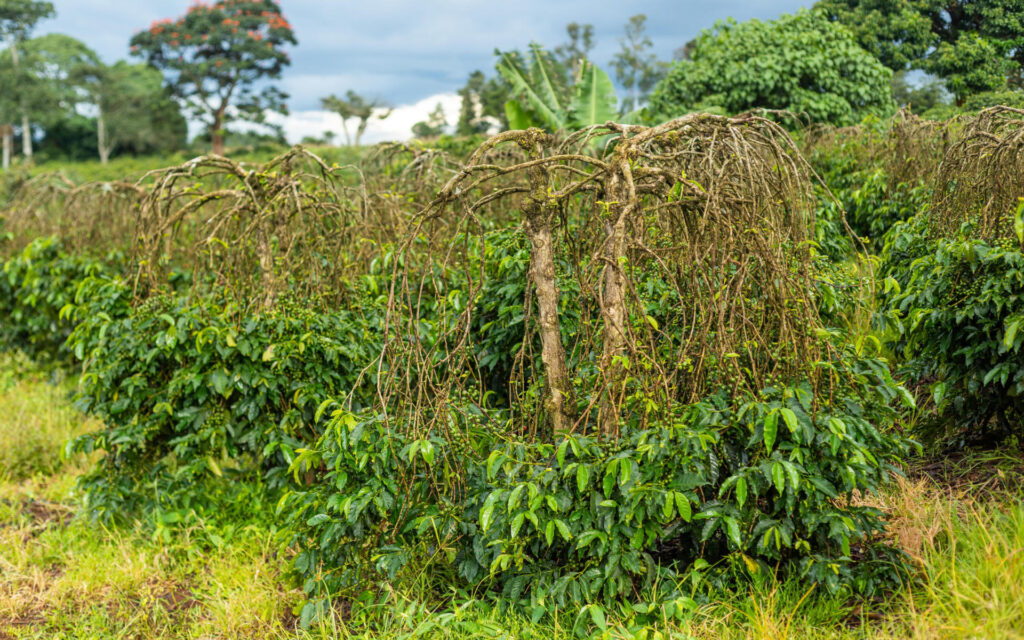
In 2016, the couple joined training sessions offered by the initiative for coffee&climate (c&c) which is being implemented by Hanns R. Neumann Stiftung (HRNS). Through the training, they were made aware of how they could adapt to the challenges that climate change was bringing to their coffee production. One of the solutions to the problem of fungal diseases that they learned was to apply fungicides to prevent the occurrence of the diseases. A second and more long-term solution they were also informed about was planting disease-resistant coffee seedlings.
climate change necessitates improved coffee varieties
As an alternative to the old, low-yielding varieties that are susceptible to major coffee diseases such as CBD and CLR, HRNS distributed improved seedlings to c&c project participants. These improved seedlings are hybrids of varieties that are resistant to disease and varieties that are high-yielding. They are created through an ancient technique called grafting. Hereby tissues of two different plants are joint. They keep growing together, combining the properties of both “parent” plants. Like this, issues like disease susceptibility and low-yielding can be overcome. So far, HRNS has supplied over 30,000 new seedlings of the disease-resistant compact varieties to c&c project participants in Tanzania.
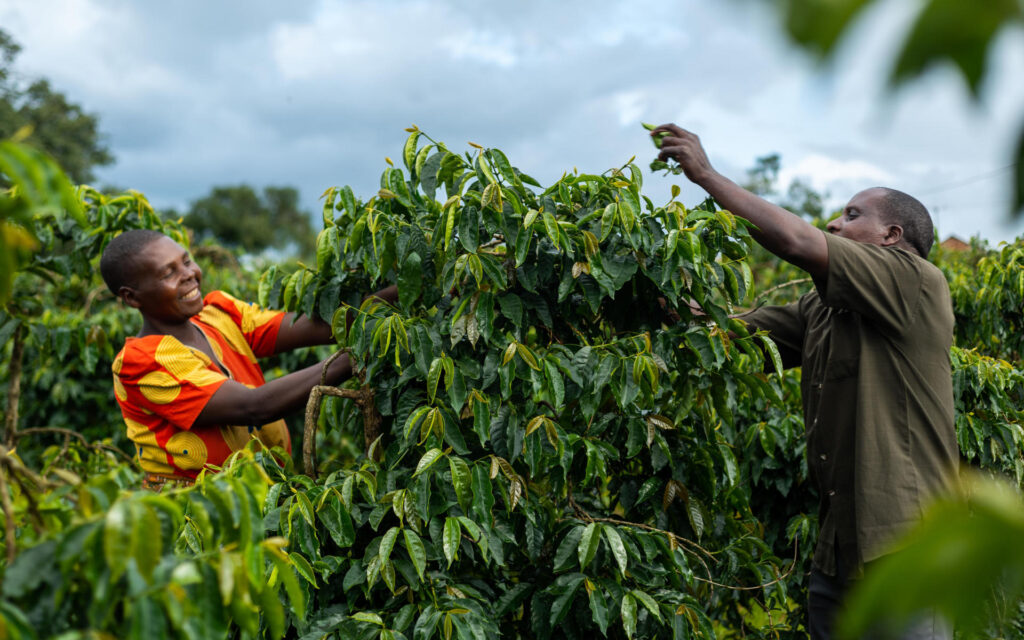
A business is born
Morris and Erize were extremely impressed by the yields of their improved varieties. Their harvest more than tripled when they expanded their coffee plantation by adding another 1.5 acres of improved varieties. Every season, they used to harvest about 400 kg of coffee from their 1.5 acres of old coffee plants but now they harvest about 1,250 kg of coffee from both their old and new trees. This exponential increase prompted Morris and Erize to begin a business of selling improved coffee seedlings to their community members.
“I encourage my neighbors to also get improved coffee seedlings. They are taller and their branches bring more fruits. I am sure they even taste better.” – Morris
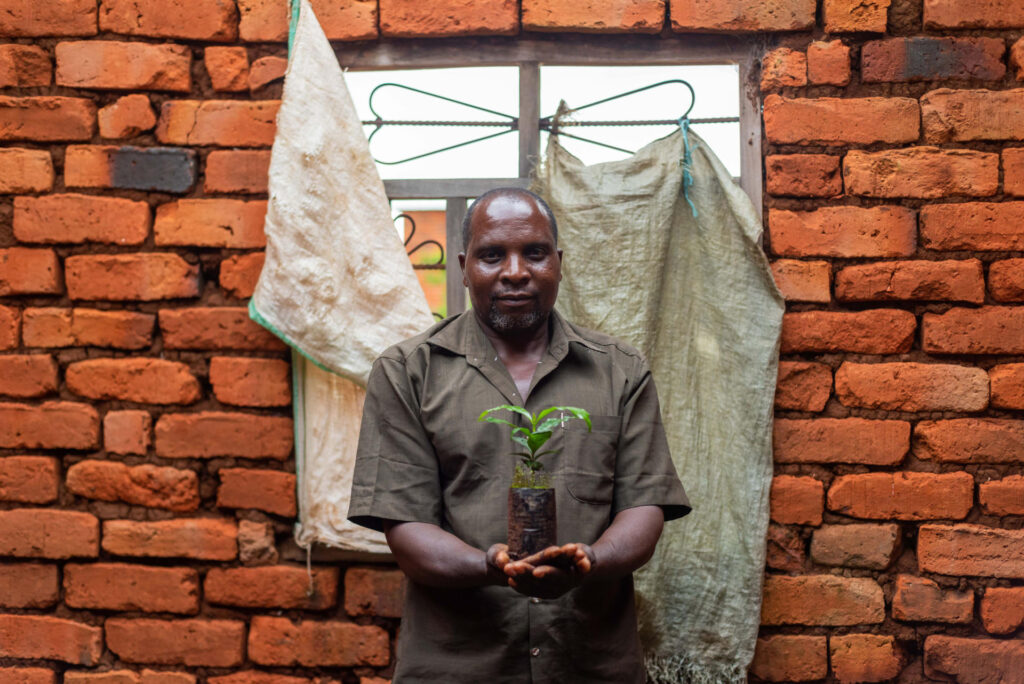
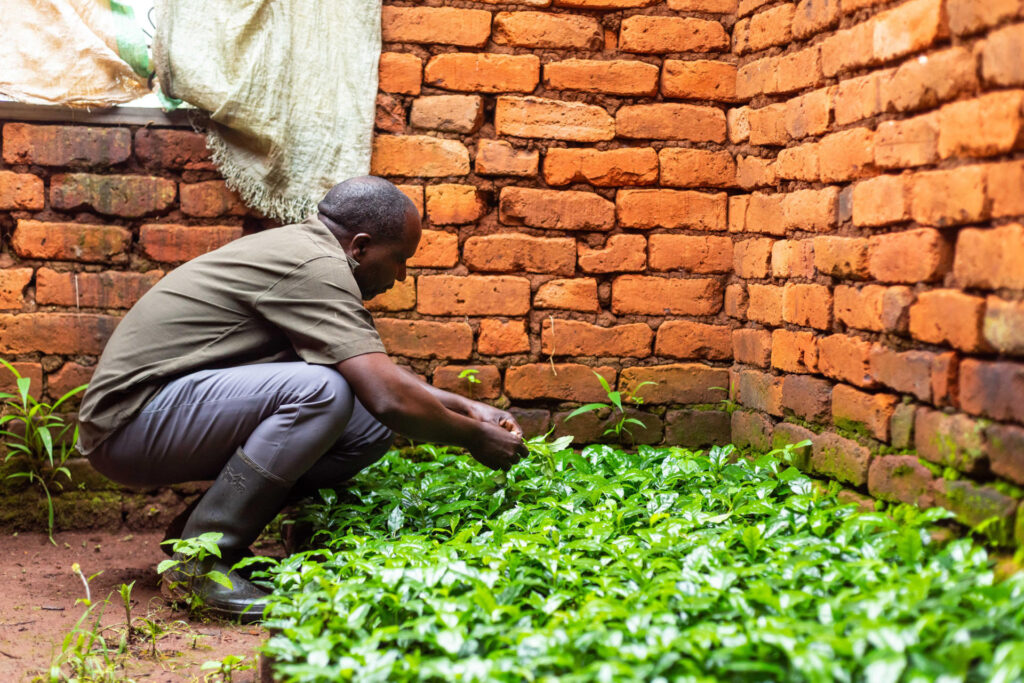
Morris and Erize have begun a coffee nursery of improved varieties to sell to their community
The increase in income enabled the family to buy four cows and a motorbike as well as extend their house. Since all but two of their children are adults and no longer in school, they are happy to reinvest their increased income in this way. Their motorcycle helps them with all the transport needs associated with their other farm businesses/crops i.e. maize, sorghum, groundnuts, beans and peas. Their cows produce milk that they sell, and the house extension includes a small room for their improved coffee seedlings and gutters for a domestic water harvesting tank. The tank’s gutters reduce erosion around the house and the tank enables them to no longer have to fetch unclean water from the river for both domestic use and irrigation.
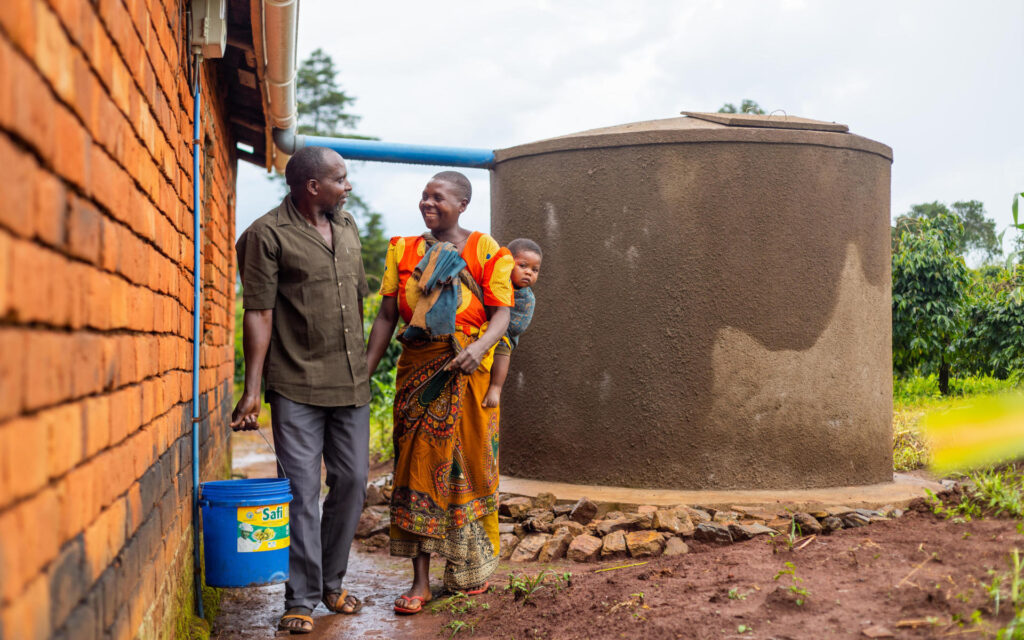
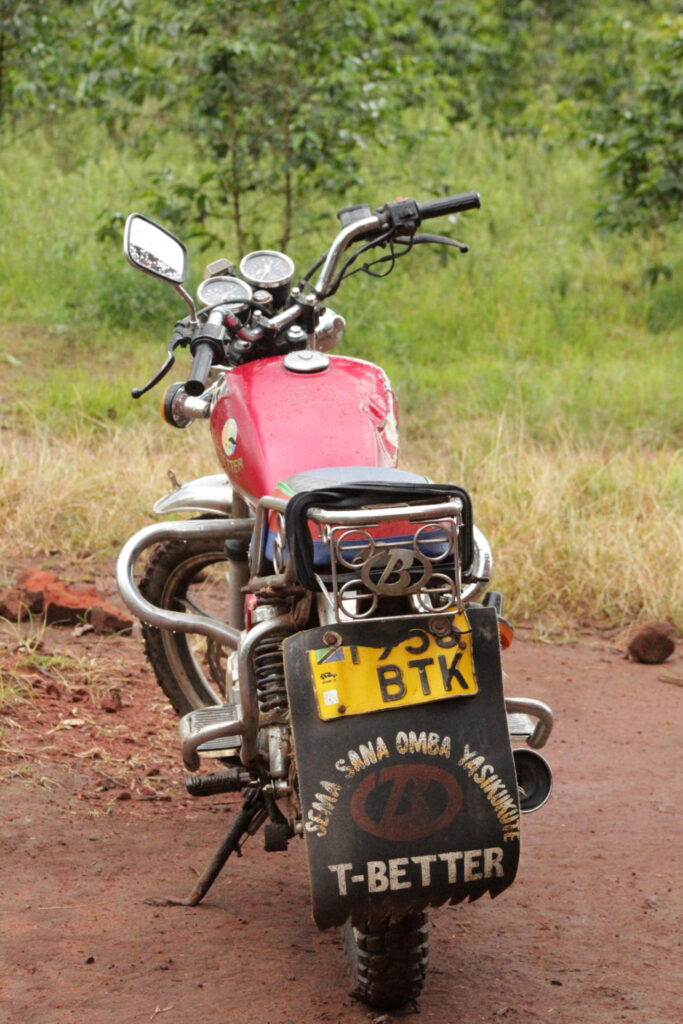
Looking ahead
Morris and Erize have come to terms with the fact that they need to either stump their old coffee plants or completely replace them with the improved varieties. Understandably, they were initially reluctant to do so because despite the many other crops they grow for both food and income, coffee is by far their most lucrative cash crop. With continued support from the c&c Tanzania team, they will continue to improve their farm management and also encourage other farmers to grow improved seedlings. c&c is advocating for and supporting the growth of shade trees alongside the improved seedlings. This agroforestry can contribute to reducing carbon dioxide in the air and as a result, mitigate climate change. It will also hopefully protect farmers against rises in temperature which are predicted to continue to put a strain on coffee production in the future.